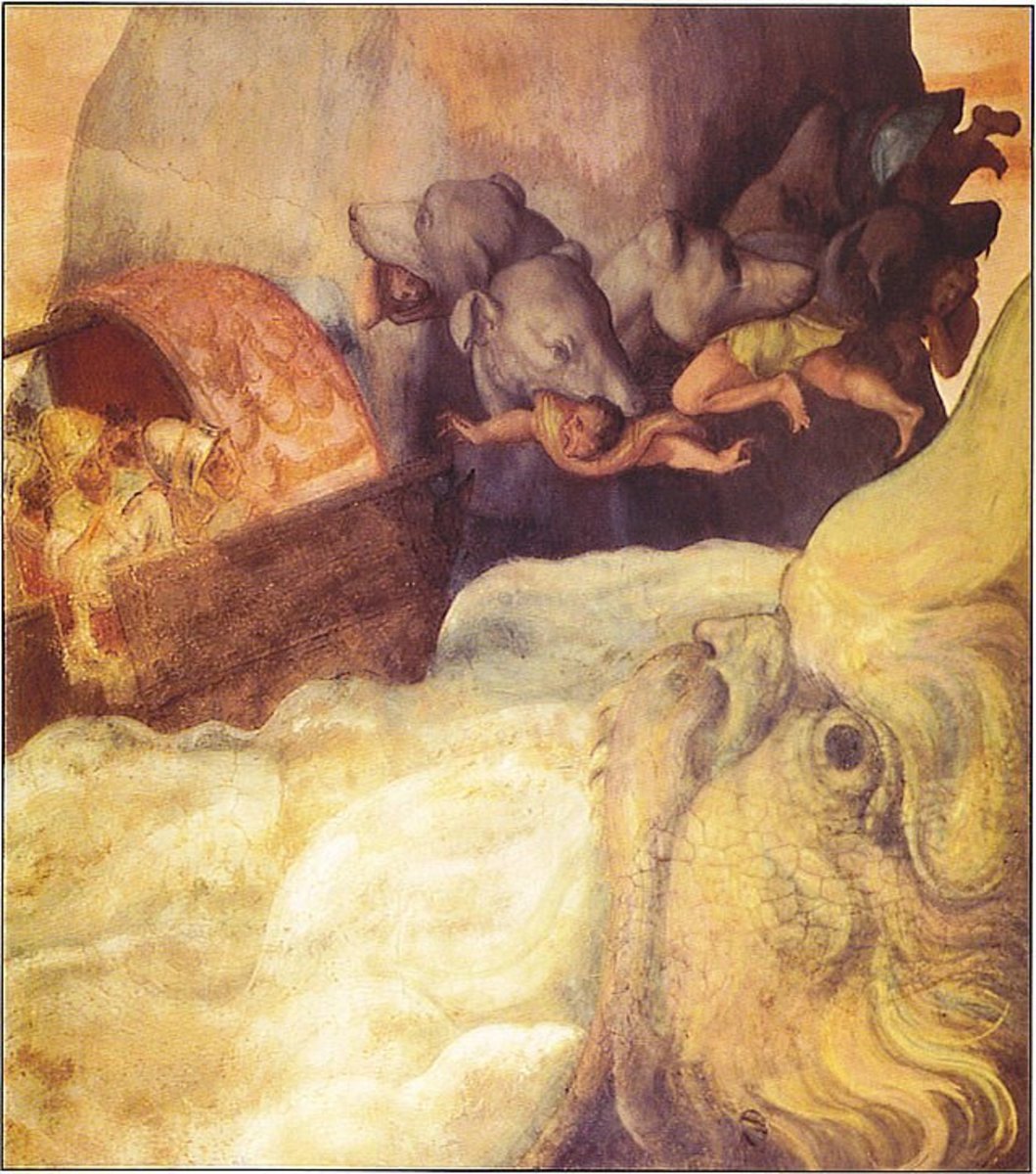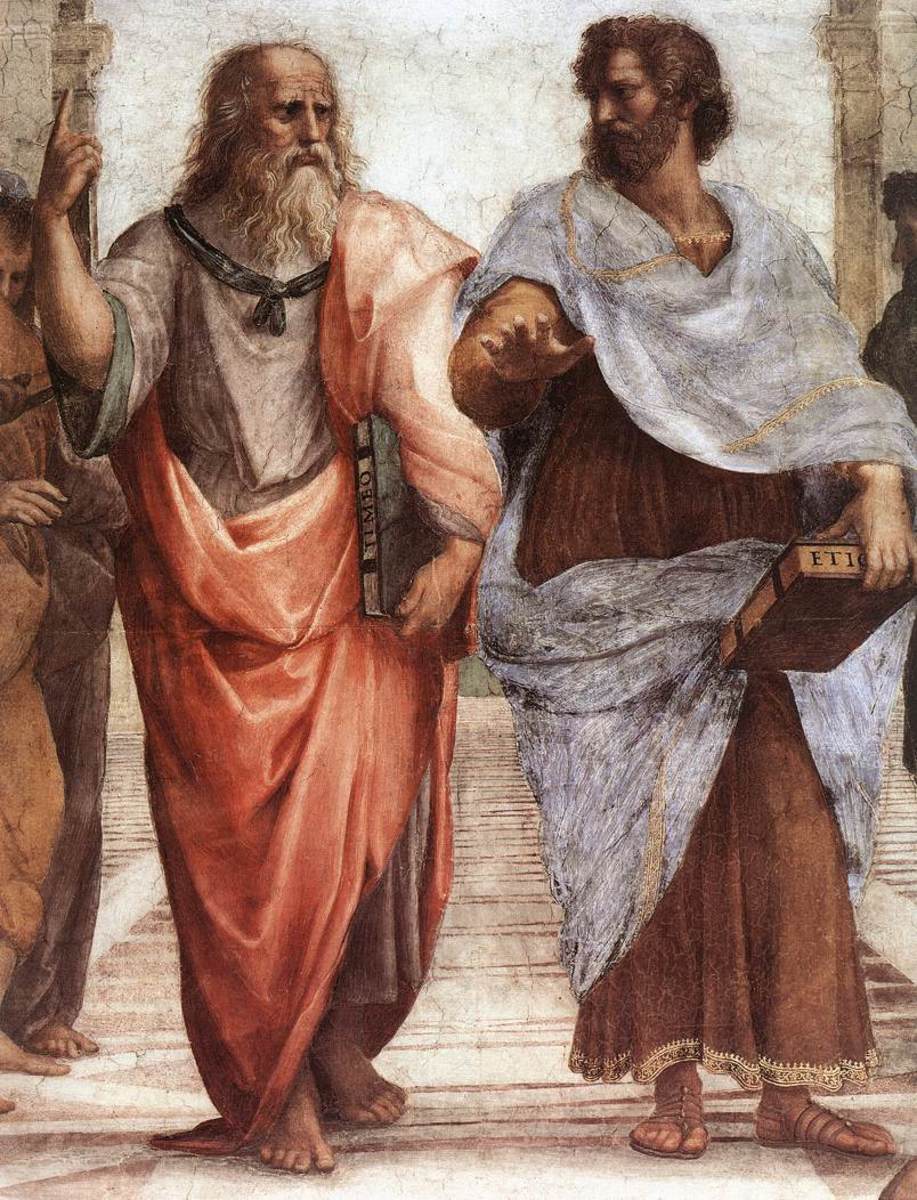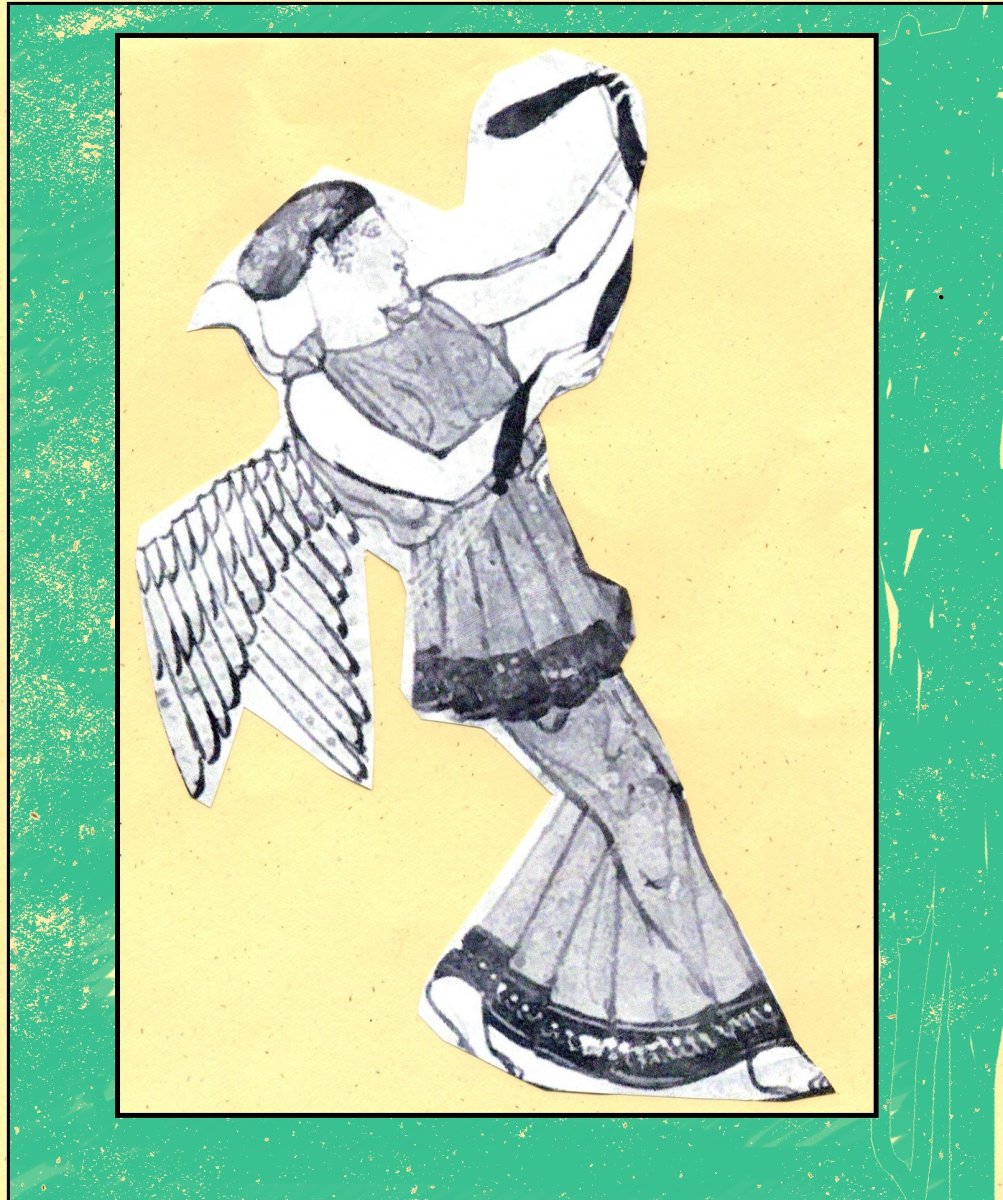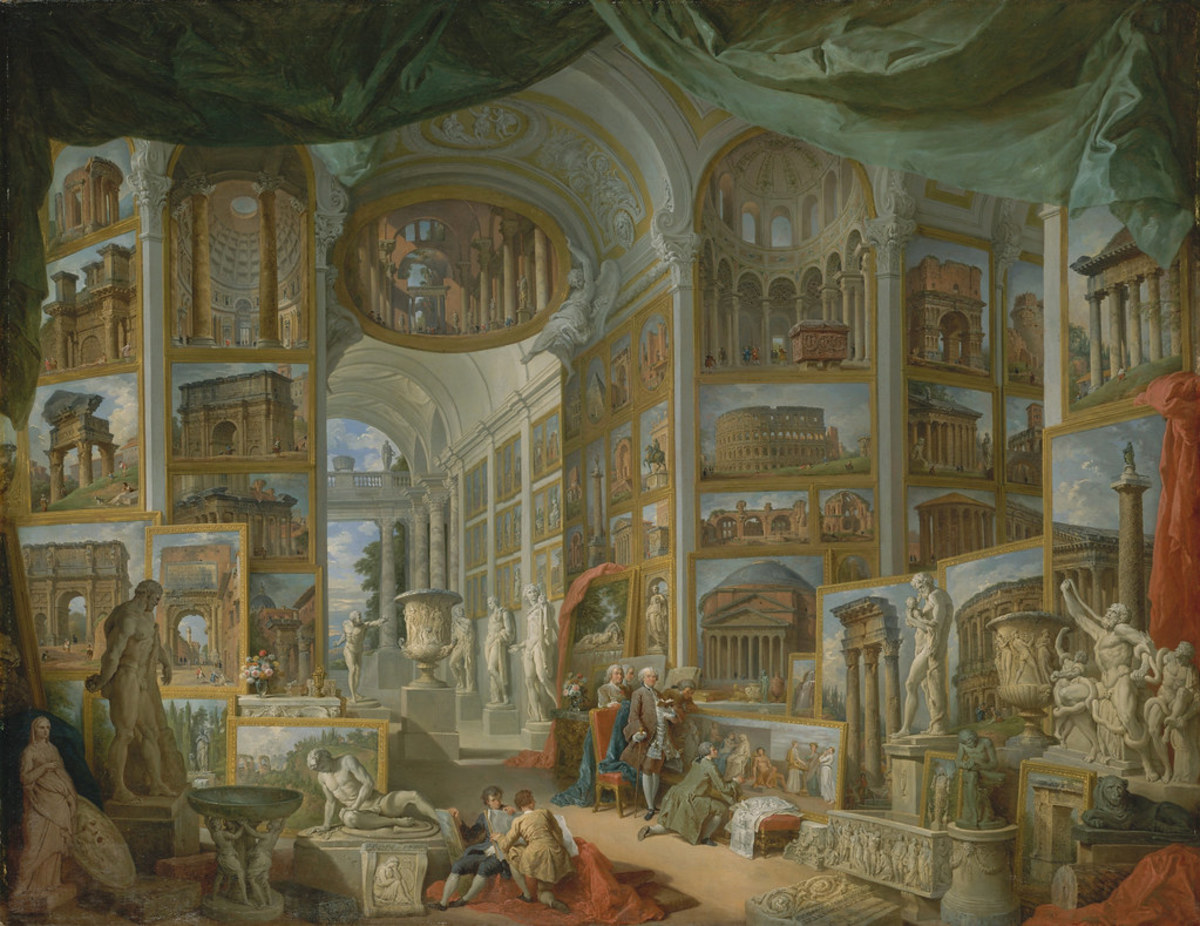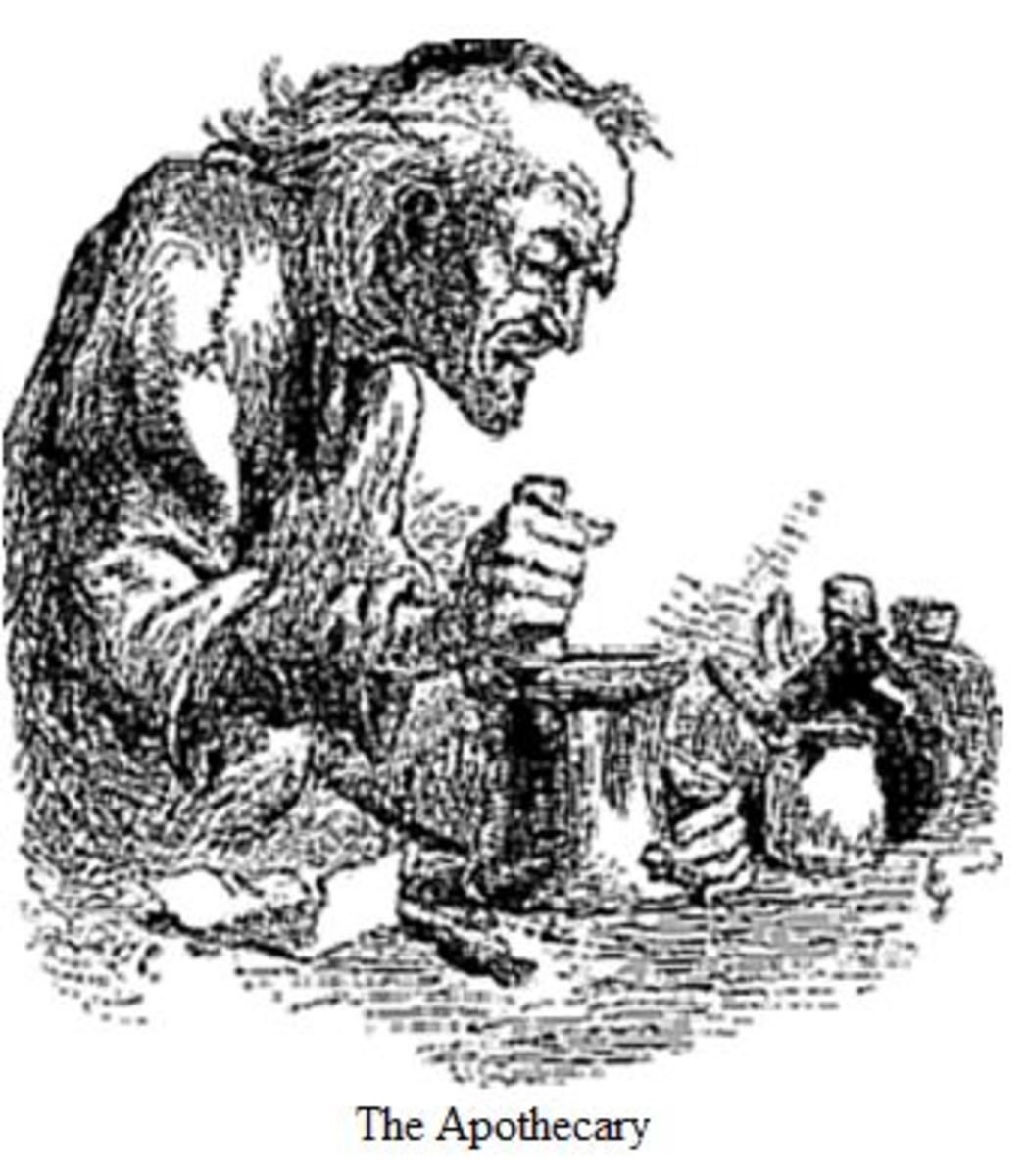Aeneas' Transformation Comes from Break-Up
Aeneas Art
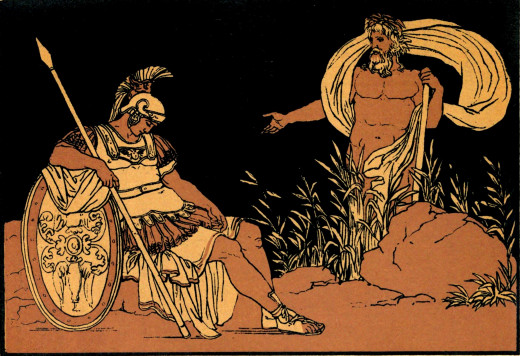
Pious Personification
Aeneas’ ability to walk away from Dido to fulfill his destiny is the defining moment in which he transitions from mere human to pious personification of the future Roman Empire. It is his first major shift from his role as a man to the embodiment of a strong nation.Virgil prepares the reader for this transition at the beginning of Book IV, when Dido confides to her sister that she has dreamed that Aeneas has been chosen for great things. (4.13) Dido senses his connection to the gods, demonstrating to the reader that Aeneas’ transformation is already underway.
Readers likewise know that Aeneas has not always been the personification of the future Roman Empire because they have seen his character development throughout the first four books. The reader knows Aeneas has some degree of determination because Book I explains that he and his small group have wandered for many years, vexed by the hatred of Juno. (1.5) Aeneas also still has the weakness of man. As the hurricane starts, he calls out to the gods and asks why he could not have died in battle at Troy. (1.138) He is tired of the wandering and turmoil, and wishes to be dead – an idea that is not very heroic or pious.
Genetically Godly
In Book II, Hector visits Aeneas in a dream, proving that the gods seem to favor him. (2.75) Aeneas responds heroically by gathering his weapons and rushing to battle, but his manner is not pious. He simply wants to die in battle. (2.430) His mother, goddess Venus, appears to him and alerts him to snap out of the rage of battle and return to save his father, wife, and child. (2.805) Venus’ appearance here also serves as a reminder to the reader that Aeneas is genetically half god. Her appearance foreshadows the fact that Aeneas will become more godly in order to live up to the prophecy of his contribution to the building a great Roman Empire.
Gods appear to Aeneas again in a dream in Book III, again showing their favor toward him. (3.205) Aeneas is obedient as always, but still not pious or the personification of the future Roman Empire. It is not until Book IV that Dido picks up on Aeneas’ god-like qualities, proving to the reader that all his trials and tribulations are molding him into a greater being.
Sister Sees
Dido’s sister Anna notes that Aeneas is special as well. She says that a union with Aeneas is certain growth and greatness for their city and encourages Dido to pray to the gods for this union. (4.64)With some divine intervention, the two fall in love -- or at least lust -- which is so great that it keeps them from appropriately tending to Dido’s kingdom. (4.255) Jupiter sees that Aeneas is overtaken by lust and sends Mercury to redirect his attention. (4.297)
When Mercury arrives, he finds Aeneas wearing a rich drape and carrying an elaborate sword, both gifts from Dido. (4.350) Mercury treats him like a gigolo by accusing him of forgetting about building his own kingdom and simply serving a woman. (4.355)This message from Mercury is another god-sent reality check for Aeneas. He is scared when he realizes he has defied the gods and his prophesy. Aeneas knows he must correct the situation and that Dido will not understand. His decision to secretly prepare to leave Carthage is not cowardly; it is out of concern for how Dido will treat the other people of Troy. He does not know how she will react and her rage could harm the people of Troy. When Dido finds out his plan, Aeneas stands firm, explaining that he never planned to hide his departure, but that Troy comes first. His love is his homeland. (4.462) Furthermore, Virgil writes that Aeneas wants to comfort her but piously obeys the gods. (4.541)
Virgil refers to Aeneas as pious again in Book V, further proof that the relationship with Dido was indeed relevant in developing his virtue. (5.36, 5.378) Aeneas’ call for a festival to honor is father is another example of his growing piety in Book V. While it is true that King Acestes is a friend of the Trojans, it is rather bold of Aeneas to enter another man’s country and declare a festival in honor of his own father. (5.79) Now, Aeneas’ boldness can be seen as personification of the future Roman Empire. The empire will be great, or bold, as prophesied and by establishing this first festival, Aeneas begins the nation-building that creates pride from ritual.
Work Cited
(Based on the reading of:
Virgil. The Aeneid. Trans. Allen Mandelbaum. New York: Bantam Classic, 2004.)


